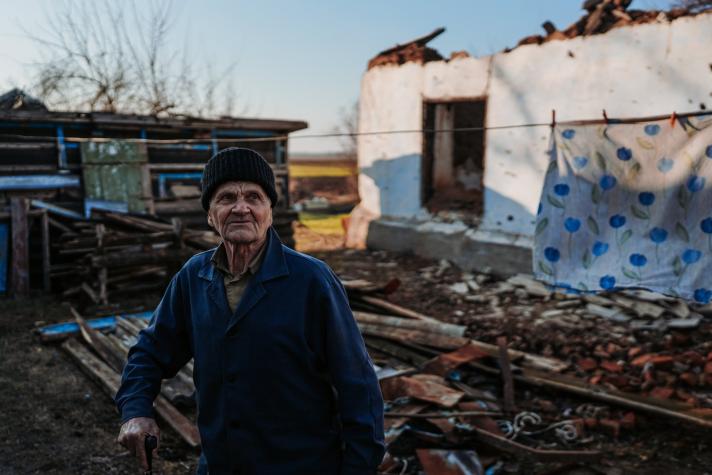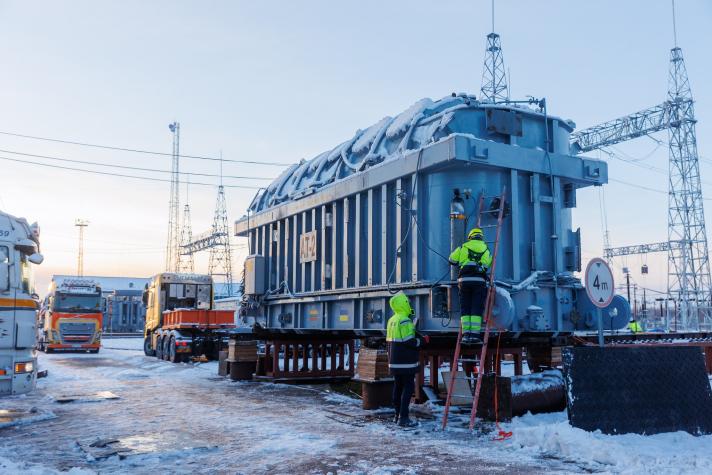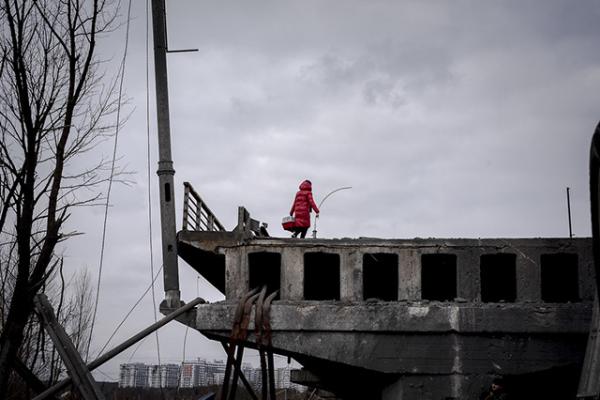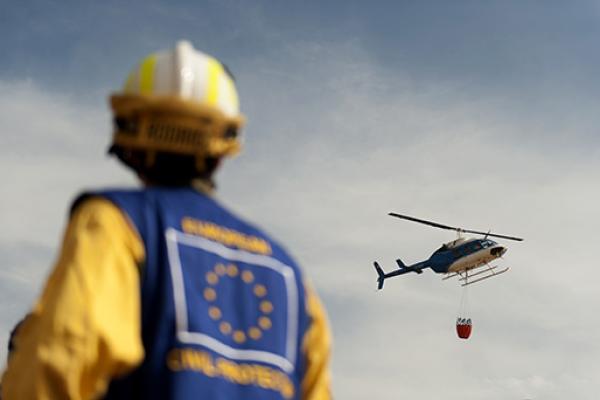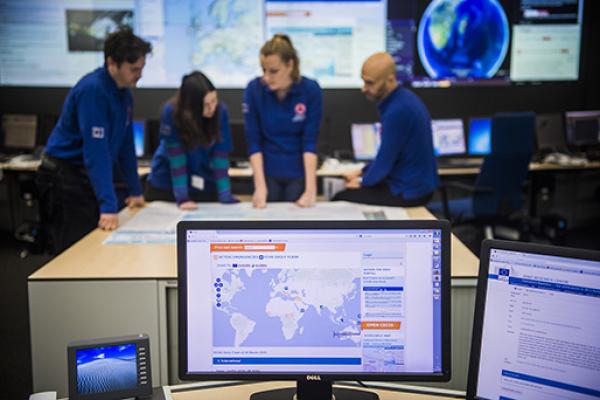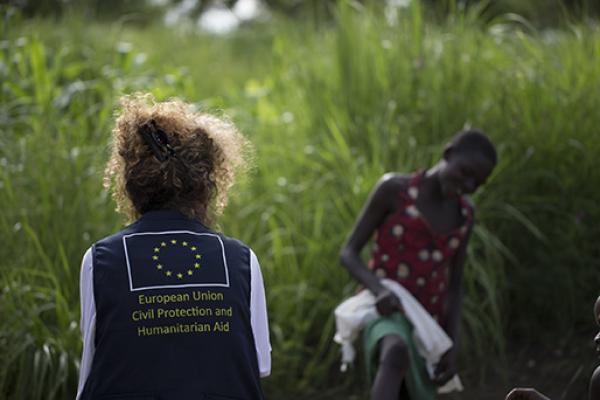Exactly 1,000 days ago, on 24 February 2022, Russia waged an all-out war on Ukraine. These days will forever be marked by the immeasurable suffering of the Ukrainian people but also by their outstanding resilience.
But let's not forget that for Ukrainians, the war did not start in 2022. The conflict in eastern Ukraine's Donbas region began already in 2014, leaving the frontline areas in need of humanitarian assistance. In fact, before 2022, the humanitarian situation in Ukraine was considered a "forgotten crisis".
The EU Humanitarian Aid has been operating in the country since 2014, long before the war in Ukraine started making headlines all across the world. In 2022, we rapidly expanded our life-saving assistance to cover the entire country. To this day, the EU support has not wavered, but at the same time, we cannot avoid the harsh reality that international attention to Ukraine's struggle is gradually waning.
As Ukraine braces for colder months, a well-coordinated and adaptive humanitarian response will be fundamental to help save lives.
Here are 5 facts you need to know about the humanitarian crisis in Ukraine:
Compounding humanitarian needs
In 2025, it is estimated that 5 million people will face food insecurity in Ukraine, down from 11.1 million in 2023 and 7.3 million in 2024. Yet, the humanitarian situation on the ground remains critical, with conditions worsening in frontline regions and the harsh winter approaching.
In 2024, the UN estimated that 14.6 million Ukrainians, almost 40% of the country's population, will need humanitarian assistance. In 2025, millions of Ukrainians will continue to be dependent on humanitarian aid. The needs range from across all sectors, like access to water and hygiene, health care, shelter, psychosocial support, and more.
In this context, the humanitarian approach in Ukraine will require sustained multi-faceted support to prevent a deepening crisis and maintain resilience through what may prove to be a pivotal winter.
Deliberate destruction of energy infrastructure
Systematic, targeted attacks on energy infrastructure are exposing Ukrainians to a cold and dark winter. Experts estimate that this year's attacks on energy facilities have resulted in the loss of some 9 gigawatts of production capacity - half of what Ukraine needs to get through the winter.
To mitigate these effects, the EU is leading the largest-ever operation under the EU Civil Protection Mechanism to provide essential assistance to Ukraine and its people. The assistance includes over 8,800 generators offered, including high-capacity ones, transformers, and specialised equipment to sustain the power supply ahead of the freezing winter months.
Facing the hardest winter in recent history
This winter, countless people whose homes have been or will be destroyed will have to endure freezing temperatures, which often plunge below -20°C. The situation is especially dire for those in frontline areas, where the imminent threat is combined with a lack of basic utilities like water and heat.
The EU is supporting the country ahead of the harsh winter by repairing buildings, restoring electricity and heating, and providing shelter to those displaced. Despite these efforts, the urgent need for assistance remains critically high, requiring continued efforts from all humanitarian actors to protect vulnerable people from the cold.
Stolen childhood
With Russia's attacks on civilian infrastructure like schools and hospitals, nearly 600 Ukrainian children have lost their lives, and more than 1,600 have been injured. They are among the most vulnerable in this war, facing not only the risk of physical harm but also being threatened by forced deportations to Russia. It is estimated that 44% of Ukrainian children show signs of post-traumatic stress disorder (PTSD).
Since the start of the full-scale invasion, the EU has stepped in to provide substantial support to Ukrainian children, focusing on initiatives like rebuilding schools, constructing bomb shelters, organising catch-up classes, and offering psychological support. The children of Ukraine will never get their childhoods back.
Systematic violations of International Humanitarian Law
Wars have rules, yet Russia's ongoing war in Ukraine shows a blatant disregard for these principles. The deliberate targeting of critical infrastructure, mass civilian casualties, and repeated strikes on schools and hospitals are only a few examples of Russia's violations of International Humanitarian Law in Ukraine.
One of Russia's cruellest strategies is the "double-tap strikes", where the first strike is followed by a second, deliberately targeting the rescuers arriving at the site to assist the ones injured in the first strike. Since the start of the full-scale war, there have been 38 double-tap strikes at sites where first responders from the State Emergency Service of Ukraine have carried out their duties, resulting in 110 injuries and 34 deaths of the rescue workers.
These actions, in violation of the Geneva Conventions, highlight the scale of the suffering inflicted on civilians.

